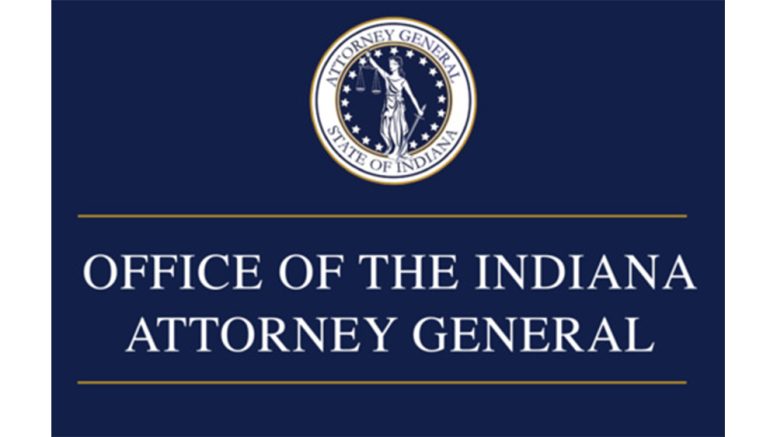Indiana Attorney General Todd Rokita is asking Hoosiers to stay alert for signs of human trafficking in communities across Indiana and to report any suspicious activities to authorities.
People in certain job roles – such as medical professionals, restaurant workers, teachers, and truck drivers – are particularly likely to come into contact with trafficking victims.

Rokita
“The evil enterprise of human trafficking is a modern form of slavery,” Rokita said. “In America, this scourge is propagated in significant part by criminal cartels operating out of Mexico, and it’s yet one more reason we need to secure the southern border. Here in Indiana, we’re committed to rescuing victims from their enslavers and bringing perpetrators to justice.”
Human trafficking is a $150 billion criminal enterprise. It occurs anytime someone uses force, fraud, or coercion to make another individual provide labor, services, or commercial sex acts. If the person performing commercial sex acts is under 18, the crime of human trafficking still occurs even without the elements of force, fraud, or coercion (humantraffickinghotline.org)
With Jan. 11 being National Human Trafficking Awareness Day, now is a fitting time to remind Hoosiers to stay watchful for signs that someone might be a trafficking victim.
According to the U.S. State Department, those signs include observations that someone:
- lives with their employer.
- lives with multiple people in a cramped space.
- otherwise experiences poor living conditions.
- is prohibited from speaking alone to strangers.
- gives answers that appear to be scripted and rehearsed.
- has an employer holding their identity documents.
- shows signs of physical abuse.
- is submissive or fearful.
- is unpaid or paid very little.
- is under 18 and working in the commercial sex industry.
If you have suspicions that someone is being trafficked, you should immediately call local law enforcement. You may also call the National Human Trafficking Hotline at 1-888-373-7888.
In addition to waging lawsuits to force federal officials to crack down on border security and illegal immigration, Rokita and his team are engaged in other efforts to combat human trafficking.
The Office of the Attorney General operates the Address Confidentiality Program, which helps protect victims of certain crimes – including those who have been trafficked – by concealing their residential address from the public and thereby their victimizers. Learn more about the program at the Attorney General’s website.

